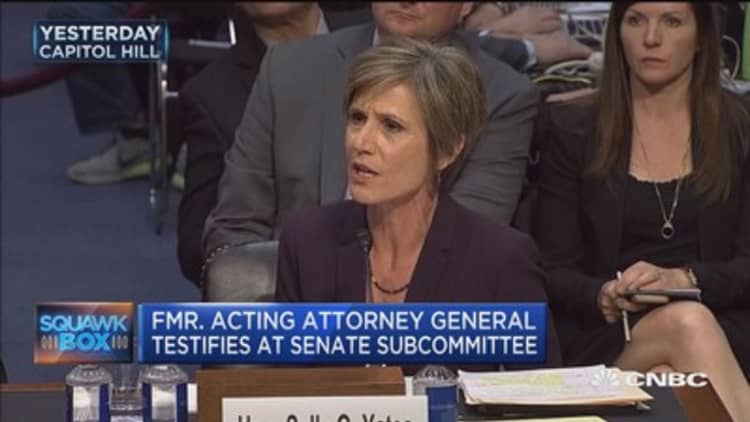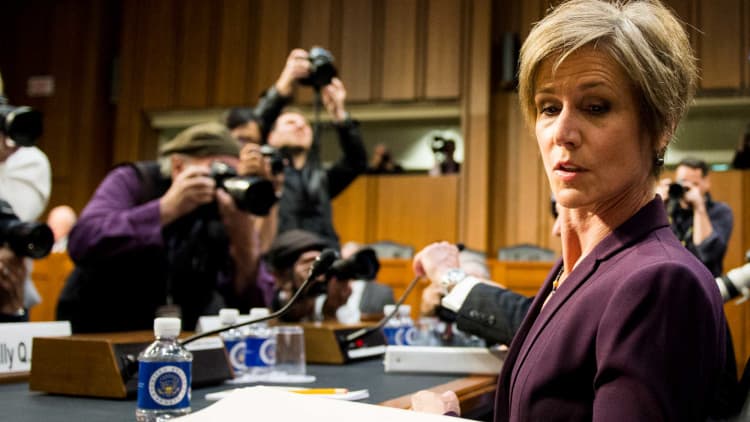Former acting Attorney General Sally Yates has suggested that former national security advisor Michael Flynn may have run afoul of criminal law before he got fired.
In an excerpt of a CNN interview that will air Tuesday, Yates said "there is certainly a criminal statute that was implicated by [Flynn's] conduct." She did not specify what that law may have been.
A person close to Flynn said that Yates seemed to hint that Flynn could have violated the Logan Act, an obscure law essentially saying private citizens cannot conduct foreign policy discussions without the government's permission. It would be a stretch to argue that Flynn broke that law as he prepared to become national security advisor, the person said.
Yates says she warned the White House in late January that Flynn — a retired Army lieutenant general — "essentially could be blackmailed" by Russia after he misled top officials about the nature of December conversations he had with that country's ambassador to the United States. Yates previously said it created a "compromise situation," but Donald Trump did not fire Flynn until 18 days after the White House was first warned.

The Trump administration has faced questions about why it hired Flynn to the key post, particularly after it came to light that the Pentagon is investigating whether Flynn got permission to accept payments from foreign governments, including a 2015 speaking engagement in Moscow. It also has faced criticism about the amount of time that elapsed between Yates' warning and when Flynn got fired.
In the CNN interview, Yates says she felt like the White House "needed to act." She said she stopped short of recommending that Trump should fire him.
Yates added that she felt the situation was urgent.
Trump disputed that characterization last week. He told NBC News that White House Counsel Don McGahn, after meeting with Yates, did not make it sound as if firing Flynn was an "emergency" that "had to be done immediately."
"This man has served for many years. He's a general. … In my opinion, a very good person," Trump told NBC. "I believe that it would be very unfair to hear from somebody who we don't even know, and immediately run out and fire a general."
He reiterated that he fired Flynn not because of Yates' warning but because Flynn misled Pence. Flynn told Vice President Mike Pence that he had not discussed Russia sanctions with the ambassador, when in fact he had.
Trump fired Yates in late January after she told Justice Department lawyers not to defend Trump's first executive order restricting travel from seven Muslim-majority countries. That came before current Attorney General Jeff Sessions was confirmed by the Senate.
Watch: Yates' concern about Flynn



